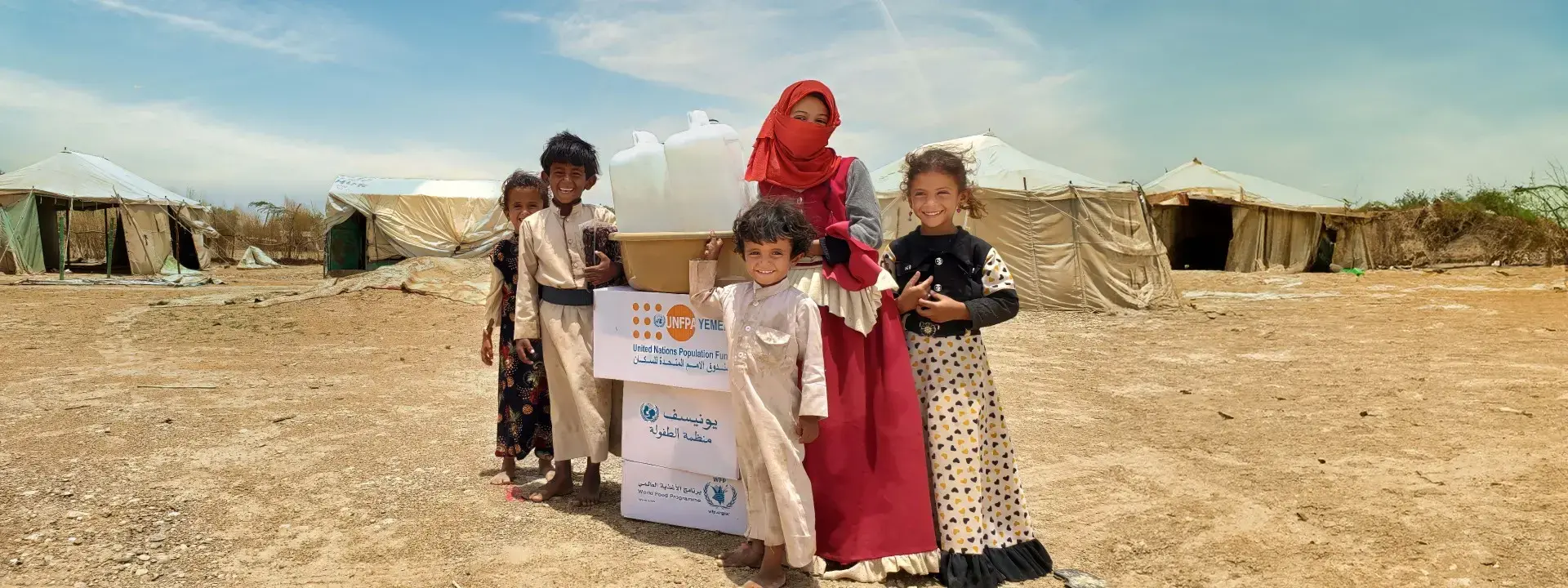Yemen remains the site of one of the world’s largest humanitarian crises. A staggering 19.5 million people require some form of humanitarian assistance in 2025. These are the results of multiple overlapping emergencies that have pummeled the country: violent conflict, economic collapse, recurrent natural disasters and severely disrupted public services.
Women and girls continue to be disproportionately impacted by the humanitarian crisis in Yemen. They face severe protection risks, as well as limited access to basic services such as healthcare, especially maternal and reproductive care.
UNFPA plays a critical role in the overall humanitarian response in Yemen, providing lifesaving reproductive health and protection services.
UNFPA is the single source of essential reproductive medicines for the country at present. UNFPA has been ensuring a reliable reproductive health supply chain despite blockades and other bureaucratic impediments serving as lifeline to the millions of women and girls in Yemen.
UNFPA leads the Inter-Agency Working Group on Reproductive Health; and coordinates and leads in provision of women protection programmes across the country as chair of the GBV sub-cluster as per GBV AoR under the Protection Cluster.
UNFPA leads the UN’s multisectoral Rapid Response Mechanism (RRM) across the country that provides emergency relief assistance to newly displaced persons in partnership with WFP and UNICEF while serving as the entry point to all other humanitarian responses; resulting in the provision of humanitarian assistance to nearly five million displaced people since June 2018.


